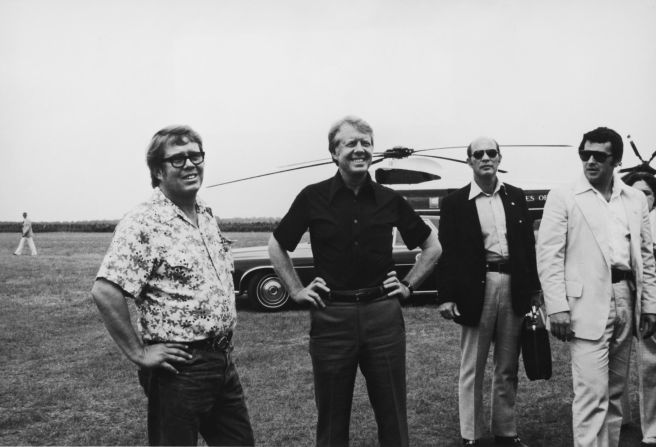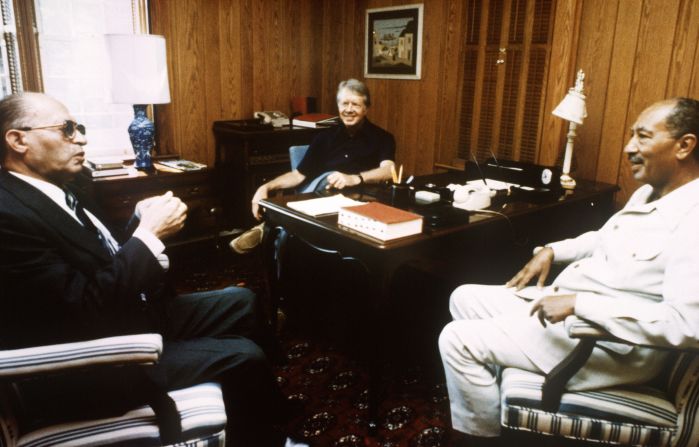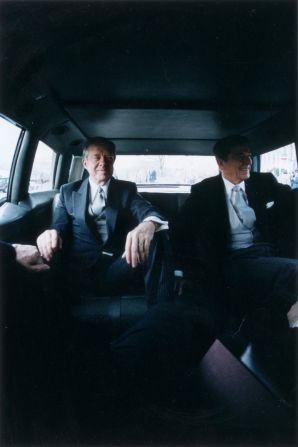Editor’s Note: Julian Zelizer is a professor of history and public affairs at Princeton University and a New America fellow. He is the author of “Jimmy Carter” and the forthcoming book, “The Fierce Urgency of Now: Lyndon Johnson, Congress and the Battle for the Great Society.” The opinions expressed in this commentary are solely those of the author.
Story highlights
October 1 is the 90th birthday of former President Jimmy Carter
Julian Zelizer: Carter's campaign emphasized he would restore trust in the government
He says while many Americans consider his presidency a failure, there are lessons
Zelizer: Carter was right to press public officials to do more to reform our political system
Today is the 90th birthday of former President Jimmy Carter.
Born on October 1, 1924, the Georgian has lived a political life that is filled with controversy and turmoil. Many Americans consider his presidency to be a complete failure. It was four years during which a stagnant economy got worse and foreign policy spiraled out of control with the Iran hostage crisis.
Since leaving Washington, Carter has remained a polarizing figure. His positions on international issues such as the conflicts in the Middle East have often caused his detractors to say that he favors one side over the other.
Nine things about Jimmy Carter

Looking back, it is hard to remember what it was about Jimmy Carter that made him so appealing to voters in 1976. That year, Democrats turned away from some major heavyweights in the party, like Washington Sen. Henry “Scoop” Jackson or Indiana Sen. Birch Bayh. Amidst the chaos of the 1970s, Democrats went for the outsider and in the general election, Carter was able to defeat President Gerald Ford.
The premise of Carter’s campaign was that he would restore trust in the federal government. For Americans who had just lived through the resignation of a president, this was a message that resonated.
Today, as we live in a period when so many Americans distrust their government and when the political system seems perpetually broken – paralyzed by partisan gridlock and bogged down by the power of money and lobbyists – it is worth remembering what Carter had to say during the summer and fall of 1976.
His message was simple: “trust me.” In his acceptance speech at the Democratic Convention in Madison Square Garden, Carter proclaimed: “It is time for us to take a new look at our own government, to strip away the secrecy, to expose the unwarranted pressure of lobbyists …”
In the aftermath of Watergate, Carter understood that the way government worked was as important as the specific policies that the government produced. During the Democratic primaries and the general election, he promised to restore confidence in the government by fixing the political process and building on the reforms that Congress had passed in 1974 and 1975, such as campaign finance and sunshine laws.
He even warned Democratic interest groups that he would refuse to blindly follow their demands out of party loyalty.
“I owe the special interests nothing,” he said. In a television spot called “secrecy,” he called for sunshine laws so that “we can understand what decisions are made about our own lives, what went on behind those locked doors.”
Carter didn’t abandon this message after winning.
Although it was symbolic, Carter thrilled Americans when he and his wife stopped the limousine as it rode down Pennsylvania Avenue following his swearing-in ceremony. He and Rosalynn stepped out of the car and onto the street to join the parade on foot. When he made this decision, Carter recalled that he was thinking about the “angry demonstrators who had habitually confronted recent presidents and vice presidents, furious over the Vietnam War and later the revelations of Watergate.” A leader who was less interested in the trappings of power than actually working to represent the people elated the crowd.
He followed through on those promises in 1978, pushing the Ethics in Government Act that created disclosure rules for the finances of public officials, lobbying restrictions for those who served in office and an Independent Counsel to investigate executive branch corruption.
While some of the reforms didn’t turn out to be as effective as he hoped, and other reforms were too limited to solve the bigger problems facing the political system, the legislation was still a huge landmark in efforts to limit corruption and ethical wrongdoing.
Over time, we have forgotten about the message of the 1976 campaign and the legislation that followed. Carter’s legacy has been bogged down by his many failures, and the huge problems with the political system have created immense cynicism that we have ever done anything to make things better.
But Carter was on to something important back then. He understood that until Americans could trust their elected leaders, we would never have the kind of healthy democracy that national leaders always promised.
In 2014, Americans would do well to celebrate the birthday of their former President by remembering this message and pressing elected officials and candidates to do more to reform our political system.
Read CNNOpinion’s new Flipboard magazine.


























































